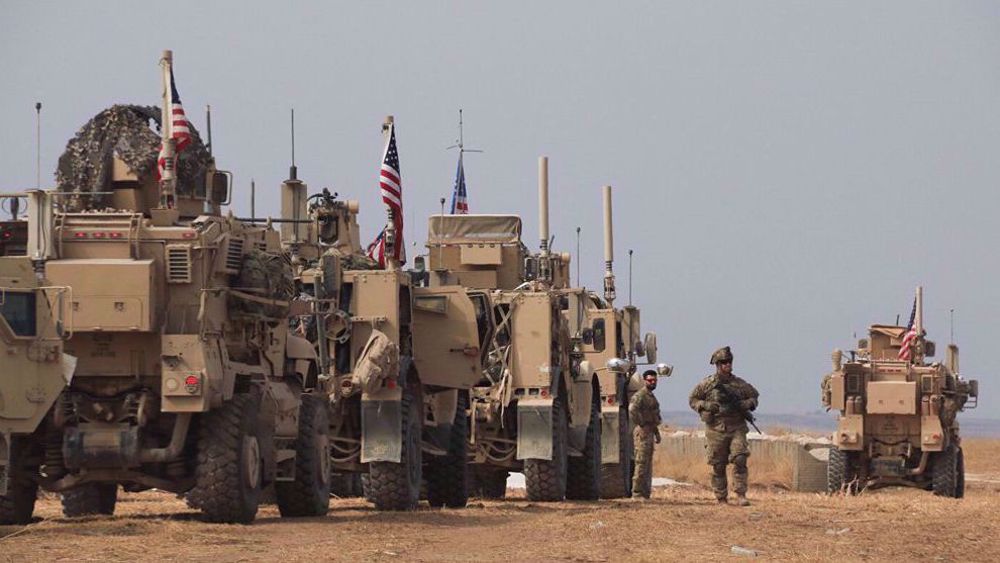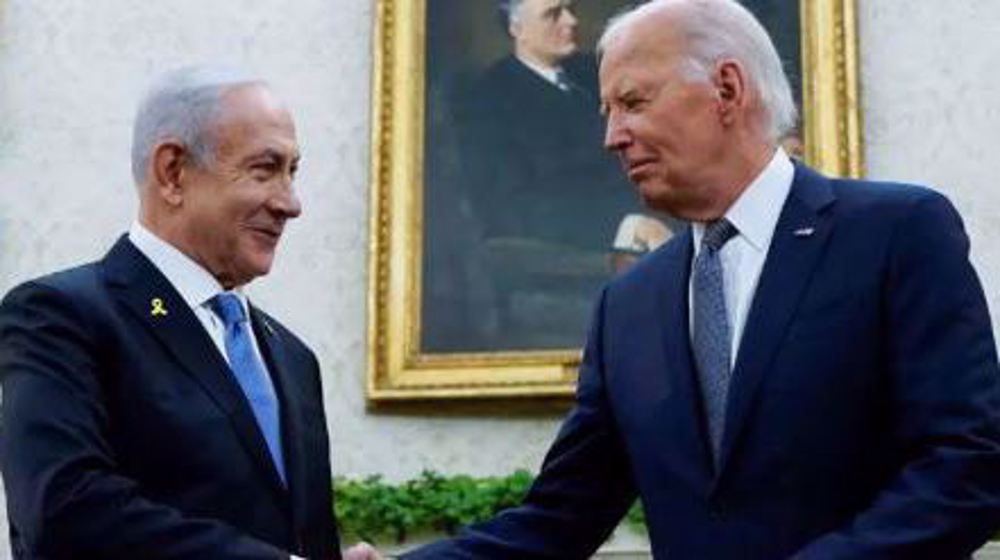Ex-US defense/spy chief warns of early Afghan troop pull-out, China policy
Former US defense chief and CIA director Robert Gates has expressed concerns over the “real risk” of Taliban militants taking over Afghanistan in case American troops are withdrawn from the war-ravaged nation, further insisting that Washington lacks a long-term strategy to deal with China.
In remarks during a Saturday interview with CBS News due to be aired on Sunday, Gates emphasized that Washington must be assured of a stable Afghan government prior to pulling out the 12,000 US troops still occupying Afghanistan, 18 years after initiating a massive invasion of the nation in a purported bid to stamp out terrorism and topple the Taliban regime ruling there at the time.
“I think that the circumstances under which you bring them home matter. And I think trying to give the Afghan government the best possible shot at survival is really important for the future of Afghanistan,” Gates said in the interview with “Face the Nation” news program that airs Sunday morning.
The remarks came as the Trump administration is currently negotiating with the Taliban terrorist group in efforts to bring an end to the destructive war in Afghanistan, although representatives of the Afghan government have not been included in the talks, intensifying a rift between Washington and Kabul.
While Gates commended the administration for trying to end the prolonged conflict, he underlined that the outcome of any agreement will eventually be out of Washington’s hands.
“So the question is, can you negotiate an arrangement whereby the Taliban agrees to operate under the Afghan Constitution, becomes a part of the political process?” asked the former defense chief.
Gates further emphasized, “If they agree to any kind of a compromise deal, it's really up to the other Afghans at the end of the day to- to resist any moves, to get rid of those changes, to go backward, if you will.”
“I think it's up to us after all this time to at least try and put the Afghan government in as positive a position for that contest that will come at some point as we can, he added. “But at the end of the day, you've got to admit, it's going to be up to the Afghans themselves.”
Gates went on to proclaim that there are potentially grave consequences to a premature withdrawal, including what he referred to as “significant risks to women’s rights in the country.”
This is while the US invaded Afghanistan with the specific, stated aim of “war on terror,” which has led to sitting at the negotiating table with the very terrorists they waged a war to dismantle. Observers, meanwhile, scoff at Gates’ expression of concern about what secular Washington regards as “women’s rights” in the predominantly Muslim nation, saying it seems to be yet another objective of the US establishment in the Asian country.
‘Washington lacks long-term China strategy’
The former US spy chief also commented on Washington’s persisting row with China, saying that he believes the Chinese have an advantage in the ongoing trade stalemate between the two economic powers, because "we really don't have a strategy" for how to deal with Beijing in the long term.
"They have set goals. They have a strategy for achieving those goals," Gates said during the interview, referring to Chinese initiatives on artificial intelligence (AI) and robotics.
The Chinese government has been pursuing an aggressive initiative, Made in China 2025, to provide subsidies to Chinese companies to gain dominance in ten high-tech fields, including robotics and AI.
As for the US, Gates stressed: "We really don't have a strategy. We haven't had a strategy in quite awhile."
He further underlined that this is not just a problem for the Trump administration, which imposed additional tariffs on $200 billion in Chinese imports on Friday, suggesting that several recent presidents have struggled to counter China's rise on the global stage.
"I don't think, basically, that the recent U.S. administrations have had a strategy for how to deal with China long-term," Gates added, blaming the hectic pace of events in Washington, where "long-term planning is a week from Thursday."
"Washington is so consumed all the time by the issue of the moment that it's very difficult to have -- to get senior people to set aside the time to think about, 'Where do we want to be in five years with this country or that country or in terms of some of our own objectives,'" Gates pointed out.
He further emphasized that the National Security Council, headed by hawkish John Bolton, is supposed to plan for long-term scenarios, but in his opinion recent councils have not done so.
Meanwhile, US President Donald Trump announced on Friday that the "process is in place" to levy an expanded round of tariffs on most Chinese imports, totaling $325 billion.
Treasury Secretary Steven Mnuchin and US Trade Representative Robert Lighthizer also met briefly with Chinese Vice Premier Liu He Friday morning, but those meetings did not lead to an announcement of a trade deal. Mnuchin also stated that "as of now," another meeting has not yet been planned.
Diplomat discourages recourse to pressure, intimidation, confrontation against Iran
UN: 2024 deadliest year for aid workers amid genocide in Gaza
Gaza health official warns of hospital shutdowns within 48 hours
Israel kills 5 more paramedics in southern Lebanon: Health ministry
Iran to launch ‘new, advanced’ centrifuges in response to IAEA resolution: AEOI
Yemen fires hypersonic missile at Israeli airbase
VIDEO | New Delhi chokes under toxic smog as air quality remains at hazardous levels
VIDEO | Press TV's news headlines


















 This makes it easy to access the Press TV website
This makes it easy to access the Press TV website